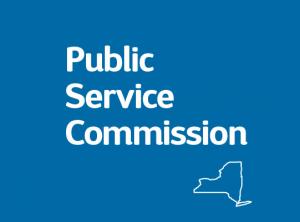New York Reviews ESCO Offerings to Low-Income Customers

After receiving more than 100 complaints about deceptive sales and marketing tactics by a Brooklyn-based energy service company (ESCO), the New York Public Service Commission held that the ESCO, MPower Energy, could be barred from operating in New York.
The ruling came following an investigation into complaints dating back to 2015. The ESCO was given 30 days to offer proof as to why it should be allowed to continue operating in New York, but it was allowed only seven days to show why it should be permitted to serve low-income customers, who all too frequently are the victims of aggressive and misleading sales practices by ESCOs. The commission said that the allegations against MPower Energy included complaints that the ESCO had enrolled some customers without their permission, an illegal practice known as “slamming.”
The commission found that the complaints demonstrated that MPower sales agents engaged in a pattern of deceptive and misleading marketing practices when soliciting customers, including misrepresenting their true identities and promising savings that were not guaranteed. A number of other ESCOs were the subject of similar reviews in separate proceedings before the commission. All of those dockets pertained to requests from the various ESCOs for a waiver from a previously enacted proscription on ESCOs serving limited-income consumers. That ruling had stemmed from a 30-month statewide audit of ESCO charges, which found that low-income New Yorkers paid about $96 million more for their energy supply than what a utility would have charged for natural gas or electricity. Thus, to protect low-income ratepayers from paying too much for electricity and natural gas, the commission had banned most ESCOs from serving low-income customers.
At the time, the commission said it would consider waivers for any ESCO that promises to offer bill savings or that can guarantee benefits to low-income customers. Last month, the commission considered requests for such waivers from seven ESCOs, with four being denied but the other three being granted. In deciding that the three companies — Just Energy New York Corporation, National Fuel Resources, and Zone One Energy — may continue to serve low-income customers, the commission determined that the guaranteed savings features of their supply plans were sufficient to assure low-income customers that they would be no worse off taking service from the ESCO than from their incumbent utility.
The commission elaborated that the three ESCOs had incorporated year-end true-up measures in their sales programs such that a customer would be reimbursed for any ESCO charges that exceeded what they would have paid if the customer had remained a full-service utility customer. As to the four ESCOs whose waiver requests were rejected (Agway Energy Services, New Wave Energy Corporation, South Bay Energy Corporation, and Stream Energy New York), the commission disclosed that the four had failed to definitively establish that their low-income sales customers would pay no more than would a utility customer for the same consumption.
The commission cited various deficiencies in their proffered plans, including an inability to show compliance with state reporting procedures, lack of detail as to how refunds would be administered, and attempts to improperly equate “valueadded” services to base sales charges. The commission provided notice that it is currently pursuing a broader, more in-depth investigation into ESCO practices through which to ascertain what, if any, new regulations or actions are necessary to protect all consumers. Re Residential and Small Non-Residential Retail Energy Markets in New York State, Cases 12-M-0476 et al., Oct. 19, 2017 (N.Y.P.S.C.).



